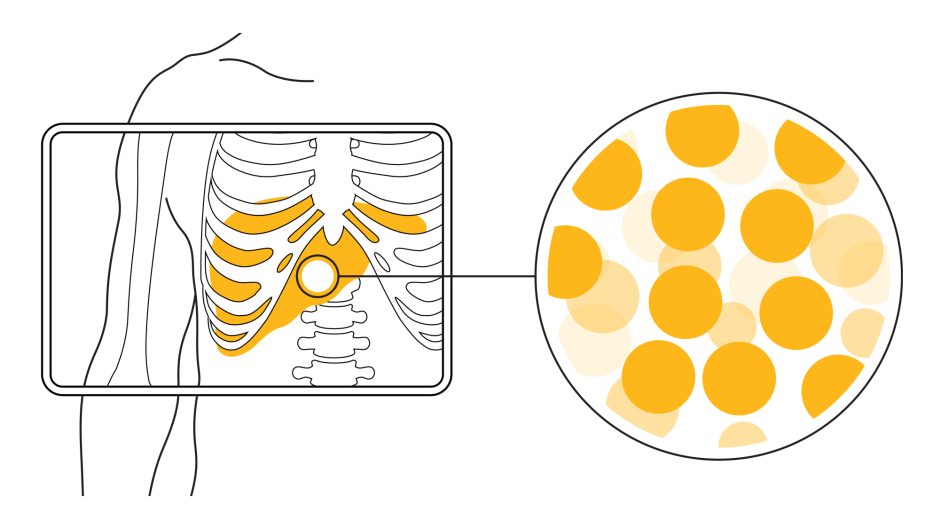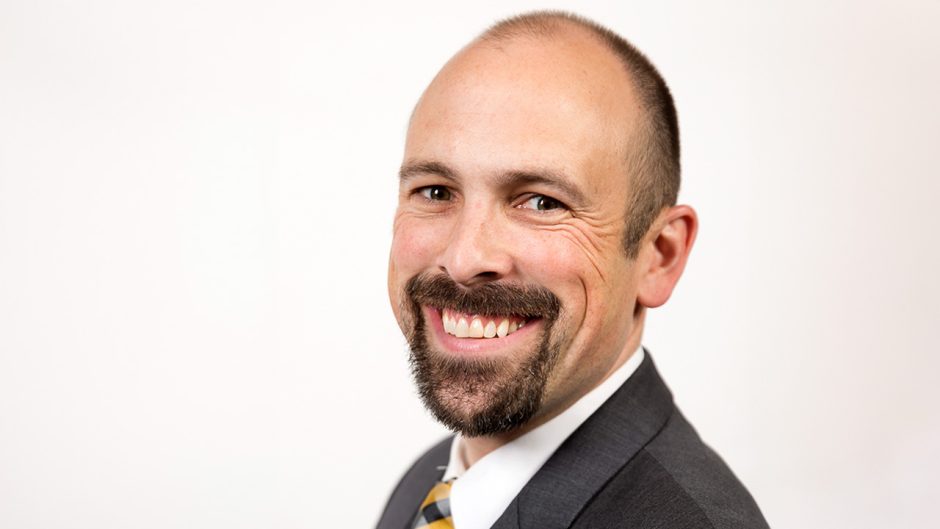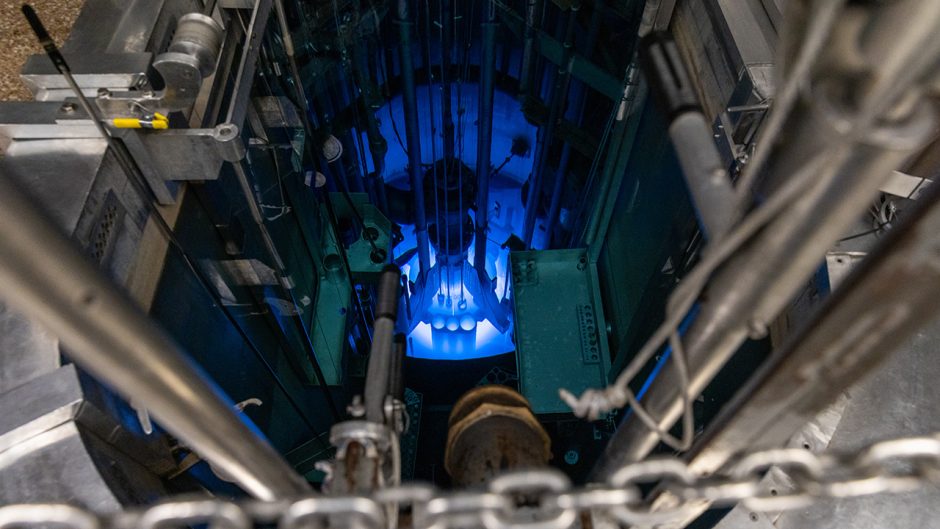
March 28, 2024
Contact: Uriah Orland, 573-884-5139, uriah.orland@missouri.edu
Liver cancer is one of the deadliest forms of the disease, and the American Cancer Society estimates a 71 percent mortality rate for patients in the U.S. diagnosed with primary liver and intrahepatic bile duct cancer.
This mortality rate is why site partners at the University of Missouri Research Reactor (MURR) are developing a leading-edge treatment for liver cancer called radioembolization. MURR is the only place in the United States that produces the radioisotope used in the emerging treatment.
“Radioembolization combines radiation therapy and microembolization, or a procedure to implant tiny radioactive particles directly into tumor blood vessels,” said Ryan Davis, director of vascular and interventional radiology at the University of Missouri. “In this case, microscopic beads containing irradiated yttrium-90, or Y-90, deliver a precise dose of radiation to kill cancer cells while sparing healthy liver tissue.”
Radioembolization is successful in treating liver cancer because tumors draw more blood flow than normal liver tissue. This process causes microspheres to accumulate in the tumor rather than the normal liver. With a half-life of about two and a half days, the Y-90 radioisotopes deliver radiation for about two weeks, and then the benign microspheres are left in the treated portion of the liver.
Unlike traditional external beam radiation therapy, the radiation from the microspheres only travels a few millimeters, preserving healthy liver tissue from the effects of radiation.
Advancing treatments with innovative science
Now, ABK Biomedical, a site partner at MURR, is advancing microsphere technology with the development of its Eye90 microspheres®, which are visible with medical imaging, like x-rays and CT scans.
“What makes Eye90 microspheres different from other products currently used in liver cancer treatments is that it is the first and only directly imageable microsphere device,” said Aravind Arepally, chief medical officer at ABK. “In other words, Eye90 microspheres are visible with fluoroscopy, X-ray, Cone Beam CT and CT imaging, potentially improving tumor targeting and treatment monitoring.”
Mizzou began a multiyear, strategic partnership with ABK Biomedical in 2019 and is currently the only location in the United States producing Y-90 for clinical and commercial use.
“Our collaborations with companies like ABK Biomedical are advancing the care and treatment of cancer patients around the world,” said Matt Sanford, executive director of the University of Missouri Research Reactor. “Mizzou’s expertise and production capabilities are helping researchers and companies around the world identify, develop and bring to market leading-edge cancer treatments that are saving and improving lives.”
Bringing Eye90 to market
ABK is currently conducting a clinical study designed to evaluate the safety and efficacy of Eye90 microspheres in patients living with unresectable hepatocellular cancer, the most common form of liver cancer. The research is focused on response rates and treatment duration.
The study also includes the potential benefits of visualization and the ability to perform CT-dosimetry with imageable microspheres.
ABK recently received Breakthrough Device Designation by the U.S. Food and Drug Administration. Breakthrough designation is granted to devices that may provide more effective treatment or diagnosis of life-threatening or irreversibly debilitating diseases or conditions for which no approved alternative exists.



![062625_CEI Aerial View_email-cropped[29] (1)](https://showme.missouri.edu/wp-content/uploads/2025/06/062625_CEI-Aerial-View_email-cropped29-1-940x529.jpg)
